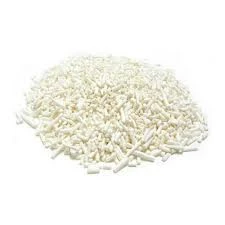
artificial sweeteners 950 951
The Impact of Artificial Sweeteners A Focus on E950 and E951
Artificial sweeteners have become a staple in modern diets, providing a low-calorie alternative to sugar that appeals to health-conscious consumers. Among the many artificial sweeteners available, E950 (Acesulfame K) and E951 (Aspartame) are two of the most widely used. Their prevalence in food products raises important questions about health, safety, and the implications of their consumption.
Understanding E950 and E951
E950, commonly known as Acesulfame K, is a calorie-free sweetener that is approximately 200 times sweeter than sugar. It is often used in conjunction with other sweeteners to enhance sweetness and improve taste profiles. Acesulfame K is heat-stable, making it suitable for baking and cooking, which contributes to its popularity in processed foods and beverages.
E951, or Aspartame, is another artificial sweetener that has garnered attention due to its widespread use in diet sodas and low-calorie snacks. It is composed of two amino acids—phenylalanine and aspartic acid—and is roughly 200 times sweeter than sugar as well. Aspartame is not heat-stable, limiting its use in products that require cooking.
Health Concerns and Controversies
The safety of artificial sweeteners has been a topic of intense debate. Both E950 and E951 have undergone extensive testing and are generally recognized as safe by major health authorities, including the U.S. Food and Drug Administration (FDA) and the European Food Safety Authority (EFSA). However, concerns still linger among consumers regarding potential health risks.
Some studies have suggested links between Aspartame and various health issues, including headaches, dizziness, and even more serious conditions such as cancer. However, many of these studies have faced criticism for their methodologies and lack of conclusive evidence. The FDA has established an acceptable daily intake (ADI) for aspartame, which reinforces its safety when consumed within recommended limits.
artificial sweeteners 950 951

Acesulfame K also has its share of controversies. While it is often regarded as safe, some research has raised questions about its long-term effects. Animal studies have suggested potential links to cancer, although these findings have not been substantiated in human trials. As a result, E950 continues to be classified as safe for consumption, yet consumers remain cautious.
The Role of Artificial Sweeteners in Weight Management
One of the primary motivations for using artificial sweeteners like E950 and E951 is their potential role in weight management. With rising obesity rates worldwide, many individuals turn to low-calorie alternatives as a means to reduce caloric intake while still enjoying sweet flavors. However, the evidence on the effectiveness of artificial sweeteners in weight loss is mixed.
Some studies indicate that replacing sugar with artificial sweeteners can help reduce total caloric intake and facilitate weight loss. Others suggest that the consumption of sweeteners may lead to increased cravings for sweet foods, potentially counteracting their intended benefits. Moreover, the psychological aspect of consuming diet products might encourage increased calorie consumption elsewhere.
The Future of Artificial Sweeteners
The future of artificial sweeteners like E950 and E951 looks promising, as demand for low-calorie products continues to rise. As consumers become more health-conscious, manufacturers are innovating to create better-tasting and safer products. New sweeteners are being developed, and existing ones are being reformulated to address health concerns and improve taste.
While E950 and E951 remain popular choices, ongoing research is essential to fully understand their long-term health impacts. As our understanding of nutrition evolves, the role of artificial sweeteners in our diets will continually be reassessed. Balancing the benefits of reduced calorie intake with potential health risks will be crucial as we navigate the complex landscape of modern food consumption.
In conclusion, E950 and E951 represent two significant players in the world of artificial sweeteners. Despite their popularity and regulatory safety approvals, public perception remains cautious. Ultimately, informed choices and moderation are key when it comes to incorporating these sweeteners into a balanced diet. As research continues, consumers will benefit from better information, allowing for more empowered dietary decisions.
-
Buy High-Quality Trichloroisocyanuric Acid for Sale | TCCA 90% SupplierNewsAug.30,2025
-
Pure Sodium Dichloroisocyanurate Dihydrate | Powerful DisinfectantNewsAug.29,2025
-
Industrial Chemicals: Quality & Purity for Every IndustryNewsAug.28,2025
-
Nitrile Rubber Honoring Strict Production StandardsNewsAug.22,2025
-
Aspartame Ingredients Honoring Food Safety ValuesNewsAug.22,2025
-
Fertilizer for Balanced Plant NutritionNewsAug.22,2025
-
Cyanide Gold Processing with High Purity AdditivesNewsAug.22,2025
Hebei Tenger Chemical Technology Co., Ltd. focuses on the chemical industry and is committed to the export service of chemical raw materials.
-

view more DiethanolisopropanolamineIn the ever-growing field of chemical solutions, diethanolisopropanolamine (DEIPA) stands out as a versatile and important compound. Due to its unique chemical structure and properties, DEIPA is of interest to various industries including construction, personal care, and agriculture. -

view more TriisopropanolamineTriisopropanolamine (TIPA) alkanol amine substance, is a kind of alcohol amine compound with amino and alcohol hydroxyl, and because of its molecules contains both amino and hydroxyl. -

view more Tetramethyl Thiuram DisulfideTetramethyl thiuram disulfide, also known as TMTD, is a white to light-yellow powder with a distinct sulfur-like odor. It is soluble in organic solvents such as benzene, acetone, and ethyl acetate, making it highly versatile for use in different formulations. TMTD is known for its excellent vulcanization acceleration properties, which makes it a key ingredient in the production of rubber products. Additionally, it acts as an effective fungicide and bactericide, making it valuable in agricultural applications. Its high purity and stability ensure consistent performance, making it a preferred choice for manufacturers across various industries.





